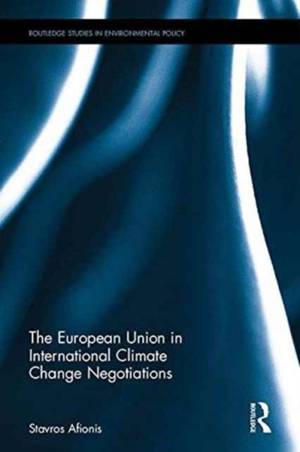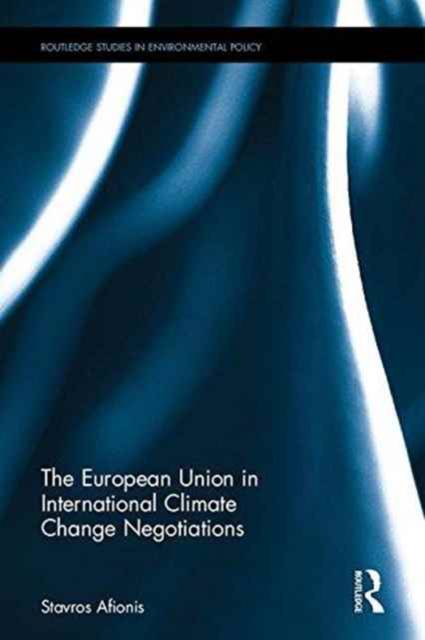
- Retrait gratuit dans votre magasin Club
- 7.000.000 titres dans notre catalogue
- Payer en toute sécurité
- Toujours un magasin près de chez vous
- Retrait gratuit dans votre magasin Club
- 7.000.0000 titres dans notre catalogue
- Payer en toute sécurité
- Toujours un magasin près de chez vous
The European Union in International Climate Change Negotiations
Stavros AfionisDescription
The EU has been portrayed as a leader in international climate change negotiations. Its role in the development of the climate change regime, as well as the adoption of novel policy instruments such as the EU Emissions Trading Scheme in 2005, are frequently put forward as indicative of a determination to push the international climate agenda forward. However, there are numerous instances where the EU has failed to achieve its climate change objectives (e.g. the 2009 Copenhagen Conference of the Parties). It is therefore important to examine the reasons behind these failures.
This book explores in detail the involvement of the EU in international climate talks from the late 1980s to the present, focusing in particular on the negotiations leading up to Copenhagen. This conference witnessed the demise of the top-down approach in climate change policy and dealt a serious blow to the EU's leadership ambitions. This book explores the extent to which negotiation theory could help with better comprehending the obstacles that prevented the EU from getting more out of the climate negotiation process. It is argued that looking at the role played by problematic strategic planning could prove highly instructive in light of the Paris Agreement.
This broad historical perspective of the EU's negotiations in international climate policy is an important resource to scholars of environmental and European politics, policy, law and governance.
Spécifications
Parties prenantes
- Auteur(s) :
- Editeur:
Contenu
- Nombre de pages :
- 220
- Langue:
- Anglais
- Collection :
Caractéristiques
- EAN:
- 9781138776067
- Date de parution :
- 09-02-17
- Format:
- Livre relié
- Format numérique:
- Genaaid
- Dimensions :
- 156 mm x 234 mm
- Poids :
- 489 g

Les avis
Nous publions uniquement les avis qui respectent les conditions requises. Consultez nos conditions pour les avis.






